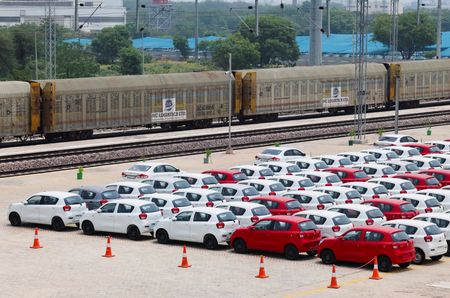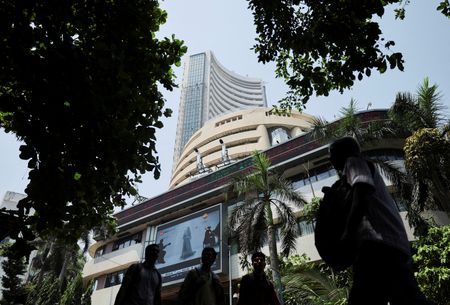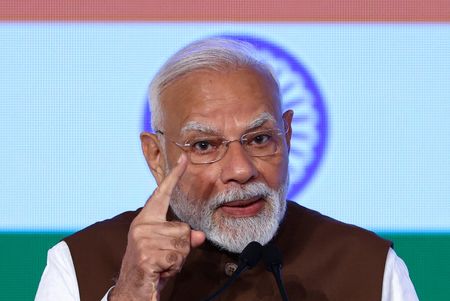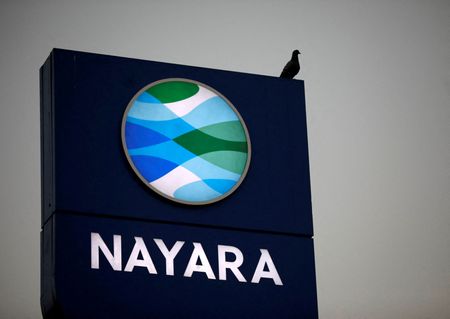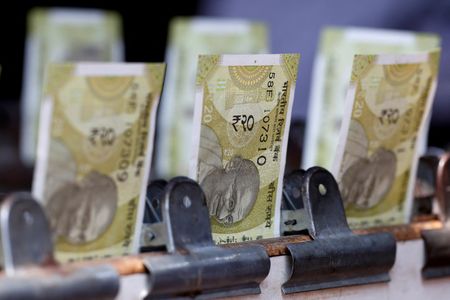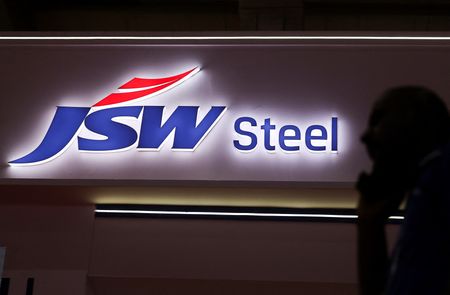By Aditi Shah
NEW DELHI (Reuters) -India has proposed relaxing stringent fuel efficiency norms for small cars, according to a draft of the new rules made public late on Thursday, sending shares of small carmaker Maruti Suzuki to a record high.
Under current Corporate Average Fuel Efficiency norms, the quantity of permissible carbon dioxide emissions is linked to the vehicle’s weight and applies to all passenger cars weighing less than 3,500 kg (7,716 lb).
The Bureau of Energy Efficiency has proposed some leniency for petrol cars weighing 909 kg or less and measuring under four meters (13.12 feet) in length, in a departure from an industry consensus that did not differentiate on the basis of weight.
“Considering the limited potential for efficiency improvements” in small petrol cars, they will be eligible to claim additional carbon saving benefits, it said in the draft.
Shares in Maruti rose as much as 1.02% to a record high of 16,435 rupees ($185.3) on Friday as it dominates the country’s small car segment with popular models like Alto-K10, Wagon-R, S-Presso, Celerio and Ignis that stand to gain.
Fuel efficiency rules are designed to incentivise higher sales of low-emission car models, mainly electric, if companies want to avoid paying penalties for non-compliance. Relaxing the limits for small cars means less pressure to electrify them.
The leniency for small cars comes despite pushback from some carmakers who told Reuters in June that any preferential treatment could be seen as giving Maruti an unfair advantage in the world’s third-largest car market.
All stakeholders have been asked to submit their comments within 21 days, after which the rules will be finalised and come into force for a five-year period starting April 1, 2027.
(Reporting by Aditi Shah; Editing by Saad Sayeed)

